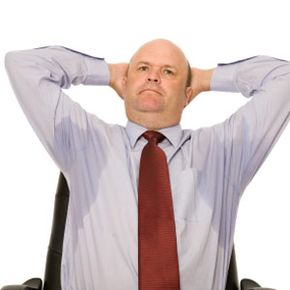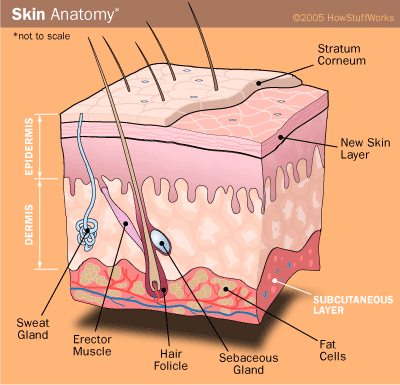You've probably heard the phrase, "Don't sweat it." But the truth is that everyone does. In fact, sweating is something your body needs to do -- you need to perspire so that you don't overheat.
When you perspire, the sweat glands in your skin secrete sweat, which then evaporates, lowering your surface temperature [source: P&G]. During a workout or when the mercury soars, this is a normal occurrence. But if you're like the small percentage of the population that suffers from excessive sweating, this occasional dewiness turns to a veritable deluge. You may feel like you sweat all the time, even when those around you stay dry and comfortable. Leisurely activities, such as sitting around the house watching television or chatting with friends over a refreshing glass of lemonade, turn you into a damp mess.
Advertisement
If you find that being a couch potato makes you all hot and steamy, you may suffer from a rare condition called axillary hyperhidrosis (excessive underarm sweating), which affects about 1 percent of the population. Technically, axillary hyperhidrosis refers to excessive perspiration from your armpits that cannot be controlled by over-the-counter antiperspirants or deodorants [source: The Center for Hyperhidrosis].
To determine if you suffer from this condition, consider how often and how heavily you sweat. If you find that at least once a week you sweat enough to soak through your clothes, that you experience constant clamminess or excessive perspiration and that any or all of this is interfering with your social life, you may want to seek treatment for axillary hyperhidrosis. Most people perspire when they are hot or when they are stressed. Therefore, the important thing to note about axillary hyperhidrosis is that sweating occurs when you normally wouldn't sweat, or wouldn't sweat that much.
Also, you should be aware that excessive sweating can be caused by medications, disease or hormonal changes, such as menopause. If you suddenly develop excessive sweating, consult your doctor to rule out any of these extenuating factors [source: Mayo Clinic].
But if your excessive sweating isn't a result of any of these factors, there may be other causes at work. Learn about them on the next page.
Advertisement


